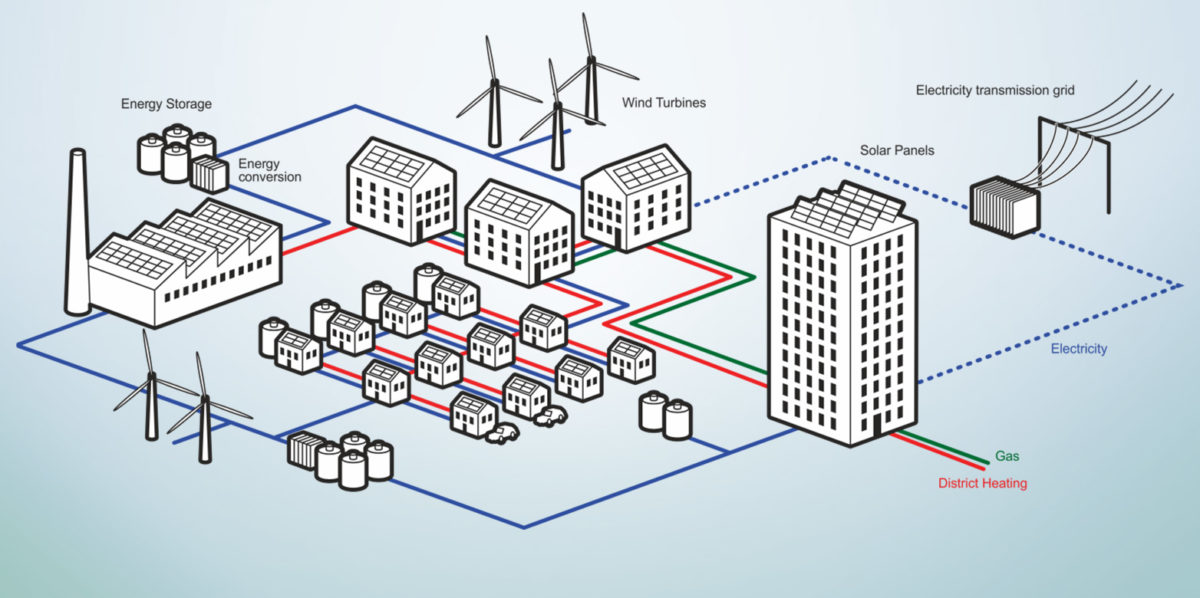A team from leading Swiss university, ETH Zürich looked into the future of the world’s energy system, and the potential for transforming to one based on distributed generation from renewable sources, coupled with multiple storage technologies.
The researchers found that the technology to power such a transition already exists, but that political, social and economic questions remain over the likelihood of such a move actually occurring.
The principle of such a system, according to ETH Zürich, is to bring energy consumption and energy production closer together physically, exploit synergies and become more efficient.
Their paper, ‘Optimal design of multi-energy systems with seasonal storage’, published in the journal Applied Energy, references several distributed systems, which are already operational in Switzerland, where energy from rooftop solar can be consumed immediately, stored in batteries for the short term or converted to hydrogen for the long term.
In a blog on the topic, ETH Zürich’s Roman Seidl discusses further issues raised by these technologies, which could be stumbling blocks in its development.
First among these is economics – even if the public is interested in the technologies, the investment for such a system is too high for most.
“Surveys conducted as part of our research show that potential users, i.e. homeowners and tenants, regard energy hubs as useful in principle,” notes Seidl in the article. But it is only a minority of users that are currently taking the first step.
This content is protected by copyright and may not be reused. If you want to cooperate with us and would like to reuse some of our content, please contact: editors@pv-magazine.com.




2 comments
By submitting this form you agree to pv magazine using your data for the purposes of publishing your comment.
Your personal data will only be disclosed or otherwise transmitted to third parties for the purposes of spam filtering or if this is necessary for technical maintenance of the website. Any other transfer to third parties will not take place unless this is justified on the basis of applicable data protection regulations or if pv magazine is legally obliged to do so.
You may revoke this consent at any time with effect for the future, in which case your personal data will be deleted immediately. Otherwise, your data will be deleted if pv magazine has processed your request or the purpose of data storage is fulfilled.
Further information on data privacy can be found in our Data Protection Policy.